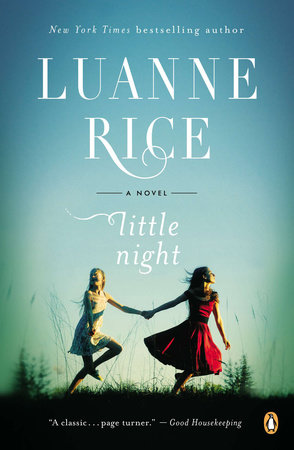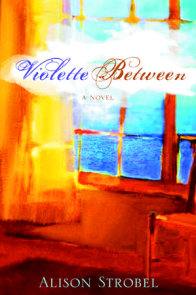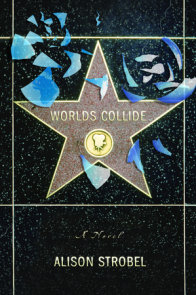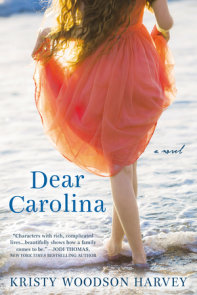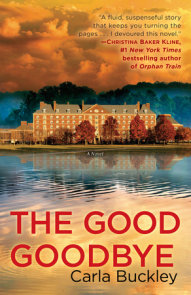READERS GUIDE
Questions and Topics for Discussion
INTRODUCTION
Clare Burke has spent eighteen years, two of them in a maximum security prison, hoping to hear from her older sister, Anne [so it connects to her mention below] On a frigid morning in Montauk nearly two decades earlier, Clare’s attempt to rescue her sister from an abusive marriage went horribly wrong. It was the day Clare lost her freedom and her family—the day her life was shattered. After her release, Clare manages to put her life back together, resuming her nature writing and urban birding around New York City. Anne has since moved to Denmark, still with her husband and still too furious or too afraid to reach out to her sister. Clare’s scarred hands are a constant reminder of that dreadful day. But worse are the gaping emotional wounds left from her sister’s betrayal and the years they’ve spent apart.
A few weeks before Thanksgiving, Clare receives a letter that takes her breath away. Her niece, Grit, is about to arrive on her doorstep. The last time they saw each other was when Grit was a little girl, staring at Clare in terror after she had hit her father with a burning log.
Once Clare learns the truth behind Grit’s sudden visit, the two women set about dismantling the secrets that have haunted their family for years. As Grit reluctantly reveals details of her life—her brother’s disappearance, her father’s relentless abuse, and her mother’s complete disconnect with reality—Clare is more determined than ever to get through to her sister. How can she breach the emotional wall Anne’s husband has built? And will helping her sister find freedom cost Clare as dearly as it did before?
Luanne Rice’s Little Night explores the mysterious, resilient bonds that tie one family together. It’s a story of the complex interaction between hope and truth—and learning that it’s never too late to fight for the ones we love.
ABOUT LUANNE RICE
Luanne Rice is the author of twenty-six novels. She lives in New York City and Old Lyme, Connecticut.
A CONVERSATION WITH CERI RADFORD
Q. What inspired you to write this novel?
I wanted to write about the way a family can look great, “normal,” from the outside, when abuse is taking place behind closed doors. Also, write about how abuse, no matter who it’s directed at, affects the entire family.
Q. You recently wrote a piece for the Huffington Post about your own experiences in an abusive marriage. How did your marriage compare with Anne’s? How did you get away?
One difference is that I didn’t have children. I received the whole brunt, and although he didn’t hit me, the psychological and emotional toll was high. Like Anne, I kept the abuse secret. I became more and more isolated from my friends and family. There was a moment when I saw things clearly. I imagined what my mother would say if she was still alive, how she would help me get away from him. So I used that strength and got away myself.
Q. In that piece, you mentioned being angry with a friend for seeing through the veil of secrecy. What advice would you give to those—a friend or family member—who want to help a victim of abuse? Should they expect to be met with anger?
A hallmark of being in an abusive relationship is denial. That’s how you survive. He’s telling you it’s all your fault, if only you’d be nicer, more understanding, less suspicious, more patient, things would be better, and he wouldn’t have to get so mad. So you twist into a pretzel, trying to set things right. Part of you hates yourself for this behavior, and part of you is hoping that this time it will work. How you react to a friend’s concern depends on the day. If you’re beaten down and in a “had enough” mode, you might listen and even open up. But because life with an abuser is like a kaleidoscope, ever shifting, when the picture changes, so does your hope and ability to see straight. So as a friend or family member, I would say be honest but be prepared for a negative reaction—until she’s really ready to hear you. And even then, she might hear for that moment and then pull back and retrench and believe him when he tells her you’re putting ideas in her head, you’ve never liked him anyway, that she’s disloyal and can’t keep her mouth shut.
Q. How did you go about putting your life, and yourself, back together again?
I think the biggest part is learning to be kind to yourself, recognizing that you don’t have to put someone else’s needs first, starting to focus on taking care of yourself. So much energy was put into trying to placate the abuser, there were huge gaps in self–care. You have to relearn—or learn—how to nurture yourself to the point of reminding yourself that you’re hungry, tired, it’s time to eat, sleep.
I wrote novels, and I surrounded myself with people who loved me. People I’d driven away over time came back to me, and no one said, “I told you so.”
Also I attended a support group called Domestic Violence Valley Shore Services. It was led by two strong, wonderful women. We’d meet on Thursday night, and by sharing our stories and tears, we healed. A group of united, supportive women is never to be underestimated.
Q. Many of the characters find solace in nature. You also blog about nature and, specifically, birds. How would you describe your relationship to nature?
I think I have a character in another novel say, “Nature is in my nature.” It’s true, it’s in all of ours. My sister Maureen has always loved the poem “Lines Written a Few Miles Aabove Tintern Abbey” by William Wordsworth, and we often quote the line, “Nature never did betray the heart that loved her.” From the youngest age I can remember I sought nature to soothe and inspire me. My father was a navigator during the war, so he’d take us on night walks and show us how to identify constellations and find our way home. My mother painted and taught us that the beach was not only for walks and fun, but, with her easel set up in the marsh, a deep and endless source of inspiration. I love getting lost in nature—not literally—but in the sense of forgetting everything but the feeling of wind in my hair and the call of a pine warbler high in the canopy of trees in Central Park’s Ramble.
Q. This is your thirtieth novel. How would you say your books have changed? How have changes in your life affected your writing?
My first novel was about sisters and family, and so is my thirtieth. I am more interested than ever in how families work—how we love each other, break up, stay together, lose each other, hold on through the worst storms. Life has taught me a lot in thirty years. Both my parents died after long illnesses. I’ve been married and divorced . . . .more than once. There’s been much love, heartbreak, and love again. A friend was murdered. There have been family estrangements. I stopped drinking. I experienced domestic violence and found strength I never knew I had. After living in New York City most of my adult life, I’ve begun spending most of my time in Southern California. I’ve been seeing the same wise, compassionate, wonderful therapist since before writing my first novel. That’s a lifetime. To have her support and perspective is invaluable in ways I can’t begin to calculate. I fly home to see her or we talk on the phone. She once remarked that my novels seem prescient; my characters would have wild experiences, and a year after publication, my life would echo theirs. It’s fascinating, the writer’s unconscious. My characters learned the lessons I needed to learn before I was actually ready. So in that way, my characters pave my way through life.
Q. What were some of the particular challenges that writing this novel presented?
This novel flowed from my fingertips. It’s full of emotion, the horror of losing a relationship with someone you love as much as yourself, and the tentative—then growing—joy of meeting a niece you never thought you’d get to know. Writing about birds and birding in Central Park gave me the chance to share one of my favorite parts of New York City. Many people don’t realize how wild the park is, one of the best places to observe migratory birds in the world.
Q. Would you argue that Anne should be held accountable for the actions that helped her escape from her husband?
I am very involved with the Domestic Violence Clinic at Georgetown University Law Center and am so proud of the work done by Professor Deborah Epstein and her students do on behalf of abused families. Anne’s actions will obviously provoke debate, but I imagine Clare immediately contacting an attorney such as Deborah or one of the Georgetown grads, finding a strong advocate who’ll fight for Anne.
Q. What do you hope readers will take away from Little Night? Did writing it teach you anything unexpected?
I hope readers will enjoy reading about the complications and secrets of a family. Love isn’t always straightforward. I also hope that a reader might recognize herself or someone she loves and find a way to start talking about what’s going on, the first step in getting help.
Q. What can we look forward to in your next novel?
Love between two people from different worlds, united by the knowledge of how it feels to lose a daughter.
DISCUSSION QUESTIONS







